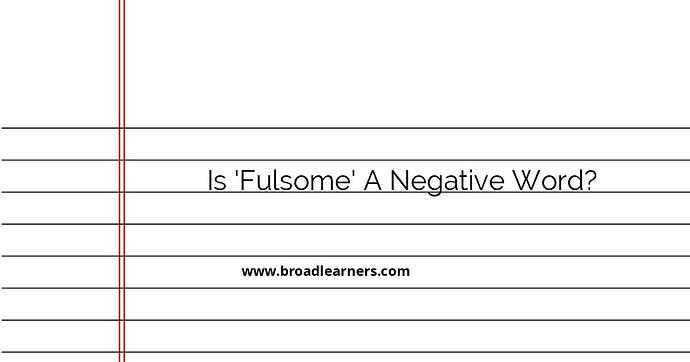Understanding the connotations and nuances of a word is crucial in effective communication. The word 'fulsome' is often a subject of confusion among English speakers due to its dual meanings and the differing contexts in which it can be used.
Let's delve into the intricacies of the word 'fulsome' and determine whether it carries a negative connotation:
Definition of 'Fulsome'
The term 'fulsome' can be defined in two distinct ways:
- Excessively flattering or insincere: When 'fulsome' is used to describe praise or compliments that are excessive, exaggerated, or insincere, it indeed carries a negative connotation. In this context, 'fulsome' suggests that the praise is overdone and may not be entirely genuine.
- Abundant or copious: On the other hand, 'fulsome' can also mean plentiful, abundant, or copious. In this sense, 'fulsome' does not inherently convey a negative meaning but rather indicates a large quantity or profusion.
It is essential to consider the context in which 'fulsome' is used to determine whether it is being employed negatively or neutrally.
Examples of Usage:
1. Negative Connotation:
When 'fulsome' is used in the sense of excessive flattery or insincerity, it carries a negative connotation. For example:
The new employee's fulsome praise of the boss seemed insincere and over-the-top.
2. Neutral Connotation:
Alternatively, 'fulsome' can be used in a neutral or positive sense to indicate abundance or generosity. For instance:
We were delighted by the fulsome spread of food at the event, catering to a variety of tastes.
By examining both the negative and neutral interpretations of 'fulsome,' one can better understand the word's complex nature and use it appropriately in different contexts.
Did I miss anything? Respond below
